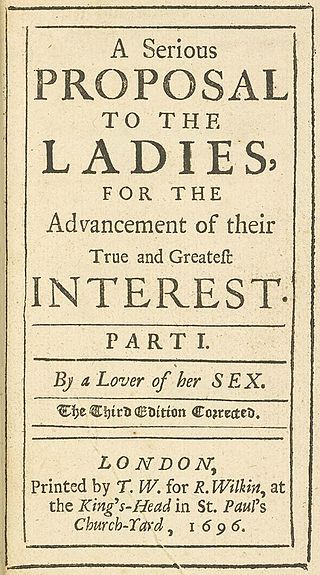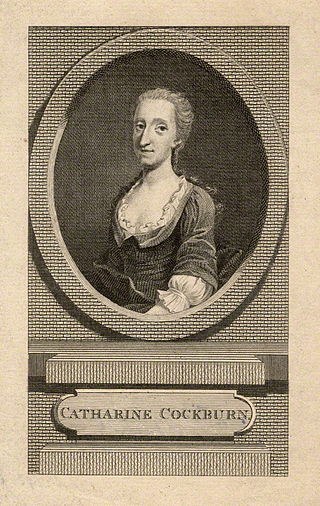Related Research Articles

John Donne was an English poet, scholar, soldier and secretary born into a recusant family, who later became a cleric in the Church of England. Under royal patronage, he was made Dean of St Paul's Cathedral in London (1621–1631). He is considered the preeminent representative of the metaphysical poets. His poetical works are noted for their metaphorical and sensual style and include sonnets, love poems, religious poems, Latin translations, epigrams, elegies, songs and satires. He is also known for his sermons.

Sir Philip Sidney was an English poet, courtier, scholar and soldier who is remembered as one of the most prominent figures of the Elizabethan age. His works include a sonnet sequence, Astrophel and Stella, a treatise, The Defence of Poesy and a pastoral romance, The Countess of Pembroke's Arcadia.
This article contains information about the literary events and publications of 1701.
This article contains information about the literary events and publications of 1699.

Mary Astell was an English protofeminist writer, philosopher, and rhetorician who advocated for equal educational opportunities for women. Astell is primarily remembered as one of England's inaugural advocates for women's rights and some commentators consider her to have been "the first English feminist."

Emilia Lanier, néeAemilia Bassano, was an English poet and the first woman in England to assert herself as a professional poet, through her volume Salve Deus Rex Judaeorum. Attempts have been made to equate her with Shakespeare's "Dark Lady".

Charles Howard, 3rd Earl of Carlisle, PC was a British nobleman, peer, and statesman.

Catharine Trotter Cockburn was an English novelist, dramatist and philosopher who wrote on various subjects, including moral philosophy and theology, and maintained a prolific correspondence.

Anne Finch, Countess of Winchilsea, was an English poet and courtier. Finch wrote in many genres and on many topics - including fables, odes, songs, and religious verse - which are informed by "political ideology, religious orientation, and aesthetic sensibility". Her works also allude to other female authors of the time, such as Aphra Behn and Katherine Phillips. Through her commentary on the mental and spiritual equality of the sexes and the importance of women fulfilling their potential as a moral duty to themselves and to society, she is regarded as one of the integral female poets of the Augustan Era. Finch died in Westminster in 1720 and was buried at her home at Eastwell, Kent.
Sarah, Lady Piers was an English literary patron, political commentator, and a poet.
Mary, Lady Chudleigh was an English poet who belonged to an intellectual circle that included Mary Astell, Elizabeth Thomas, Judith Drake, Elizabeth Elstob, Lady Mary Wortley Montagu, and John Norris. In her later years she published a volume of poetry and two volumes of essays, all dealing with feminist themes. Two of her books were published in four editions during the last ten years of her life. Her poetry on the subject of human relationships and reactions has appeared in several anthologies. Her feminist essays are still in print.
Judith Drake was an English intellectual and author who was active in the last decade of the 17th century. She was part of a circle of intellectuals, authors, and philosophers which included Mary Astell, Lady Mary Chudleigh, Elizabeth Thomas, Elizabeth Elstob, Lady Mary Wortley Montagu, and John Norris. She was married to James Drake F.R.S., physician and Tory pamphleteer. She is remembered in the field of feminist literature for her 1696 essay, An Essay in Defence of the Female Sex.
Nationality words link to articles with information on the nation's poetry or literature.

George Ballard was an English antiquary and biographer, the author of Memoirs of Several Ladies of Great Britain (1752).
Nationality words link to articles with information on the nation's poetry or literature.
Nationality words link to articles with information on the nation's poetry or literature.

Elizabeth Thomas was a British poet and letter writer. She was part of an important artistic group in London and John Dryden named her "Corinna". However, she suffered from lifelong financial precarity, romantic disappointment, and latterly, health problems. Her reputation was damaged by Alexander Pope and she spent three years in a debtor's prison near the end of her life.
John Dalton (1709–1763) was an English cleric and poet. He is now remembered as a librettist.
Eugenia was the pseudonym used by an unknown English pamphleteer of the early 18th century. She became known for a social riposte entitled The Female Advocate: Or, a plea for the just liberty of the tender sex, and particularly of married women. Being reflections on a late rude and disingenuous discourse, delivered by Mr. John Sprint, in a sermon at a wedding... at Sherburn... By a Lady of Quality.
Elizabeth Bowman was an English stage actor of the seventeenth and early eighteenth century. The daughter of Sir Francis Watson, 1st Baronet she was adopted by the actor manager Thomas Betterton. In 1692, she married John Bowman and began acting at Drury Lane the following year as Mrs Bowman. She was a member of the United Company until 1695 then joined Betterton's breakaway at the Lincoln's Inn Fields Theatre.
References
- ↑ "Lady Mary Chudleigh." The Norton Anthology of Literature by Women: The Traditions in English. New York: W.W. Norton, 1996. 161.
- ↑ "Lady Mary Chudleigh Biography." Famous Poets and Poems. 16 December 2006 <http://www.famouspoetsandpoems.com/poets/lady_mary_chudleigh/biography>.